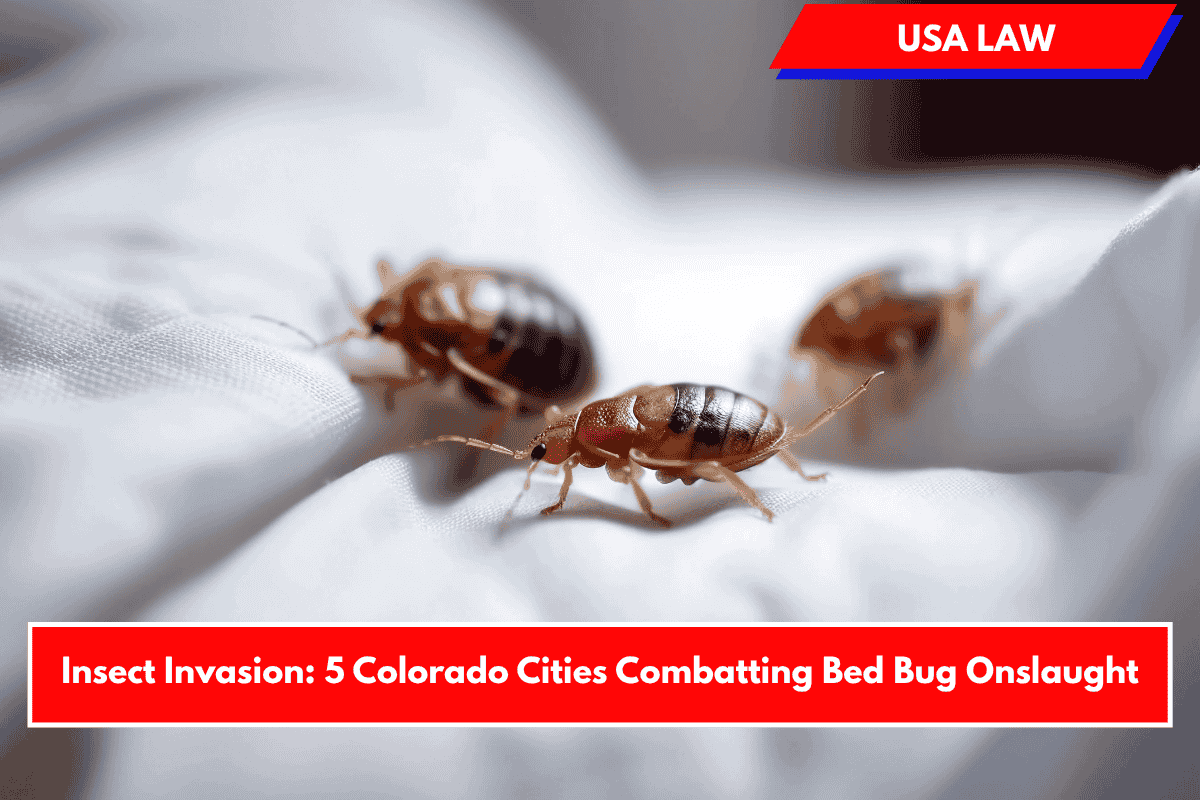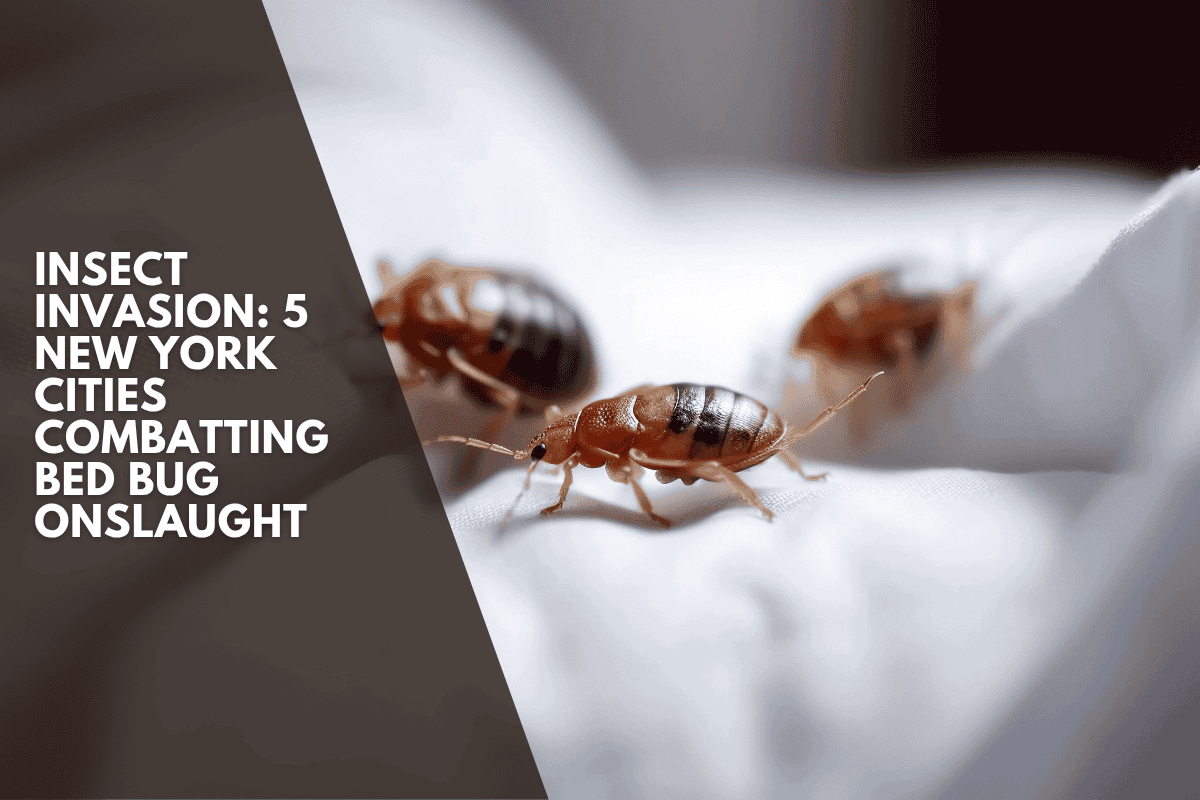Bed bugs are surging across Colorado, with Denver consistently ranking among the nation’s most infested cities. While Denver is the epicenter, several other Colorado cities—especially those with high tourism or student populations—are also grappling with persistent outbreaks.
Here’s a look at five Colorado cities actively fighting back against the bed bug onslaught, the challenges they face, and the legal frameworks guiding their response.
1. Denver: The State’s Bed Bug Epicenter
Denver has repeatedly landed in the top 20 most bed bug-infested cities in the U.S., holding the No. 15 spot on Orkin’s 2024 and 2025 lists. Residents in places like Liggins Tower, a senior living complex, have endured months-long infestations, leading to frustration and legal scrutiny of property managers.
The city’s dense population, transient residents, and high volume of travel make it a hotspot for bed bug transmission. Denver’s public health officials and property managers are under pressure to respond quickly, with regular inspections and aggressive eradication plans now standard in many multi-unit buildings.
2. Colorado Springs: Rising Awareness and Proactive Treatment
Colorado Springs is another city where bed bug cases are on the rise. Local exterminators report a dramatic increase in calls—up from one or two a month to several per day. The city’s large military and student populations, along with frequent tourism, create ideal conditions for bed bugs to spread.
Exterminators in Colorado Springs emphasize early detection and comprehensive treatment, including heat and steam methods, to combat the pests. Public awareness campaigns are also helping residents identify and report infestations sooner.
3. Boulder: College Town Vulnerabilities
As a major college town, Boulder is particularly susceptible to bed bug outbreaks. High-density student housing, frequent turnover, and shared living spaces make it easy for bed bugs to move from one unit to another.
Boulder’s landlords are required by state law to respond swiftly to tenant reports, with inspections mandated within 96 hours and treatment plans for entire buildings if bed bugs are found. Education efforts target both students and property managers to prevent infestations from spreading.
4. Grand Junction: Tourism and Transience
Grand Junction, a hub for outdoor recreation and tourism, faces unique bed bug challenges. Hotels, short-term rentals, and seasonal workers increase the risk of infestations hitchhiking from one location to another.
Local authorities and hospitality businesses are stepping up inspections and staff training to detect and address bed bugs before they spread. State law requires hotels to maintain safe, bed bug-free accommodations, with penalties for non-compliance.
5. Pueblo: Combating Outbreaks in Vulnerable Communities
Pueblo, with its mix of older housing stock and vulnerable populations, is not immune to the bed bug surge. Lower-income residents and seniors are particularly at risk, as they may lack resources to address infestations quickly.
Pueblo’s landlords, like others across Colorado, are legally obligated to cover the cost of inspection and treatment, and must act swiftly when notified of a problem. Community organizations are also involved in educating residents about their rights and responsibilities.
Colorado’s Legal Response and Tenant Protections
Colorado has some of the nation’s strongest bed bug laws. Key provisions include:
- Landlord Response: Landlords must inspect units within 96 hours of a tenant’s report and develop a building-wide treatment plan within five days if bed bugs are found.
- Financial Responsibility: Landlords are responsible for all costs of inspection and treatment, except in cases of tenant non-compliance.
- Tenant Duties: Tenants must promptly report suspected infestations and cooperate with inspection and treatment protocols.
- Legal Recourse: Tenants can sue landlords who fail to comply, and may recover damages for property loss, medical costs, and emotional distress.
- Hotel Requirements: Hotels must provide bed bug-free accommodations and can face fines or closure for violations.
The Path Forward
Colorado’s battle with bed bugs is ongoing, especially in cities with high population turnover, tourism, and dense housing. State laws now provide clear timelines and responsibilities for landlords and tenants, but enforcement and public education remain critical.
As infestations continue to challenge urban and rural communities alike, coordinated efforts between residents, property managers, pest control professionals, and local governments are essential to stem the tide of this persistent pest.
Sources
- https://www.terminix.com/blog/whats-buzzing/top-bed-bug-cities/
- https://www.iheart.com/content/2023-01-12-one-colorado-city-among-the-worst-for-bed-bugs/
- https://coloradocommunitymedia.com/2024/10/18/landlord-lawsuit-bed-bug-infestation-lakewood/
- https://www.cbsnews.com/colorado/news/residents-liggins-tower-denver-struggle-bed-bugs/
- https://retro1025.com/denver-lands-in-top-20-of-cities-that-have-a-bed-bugs/






